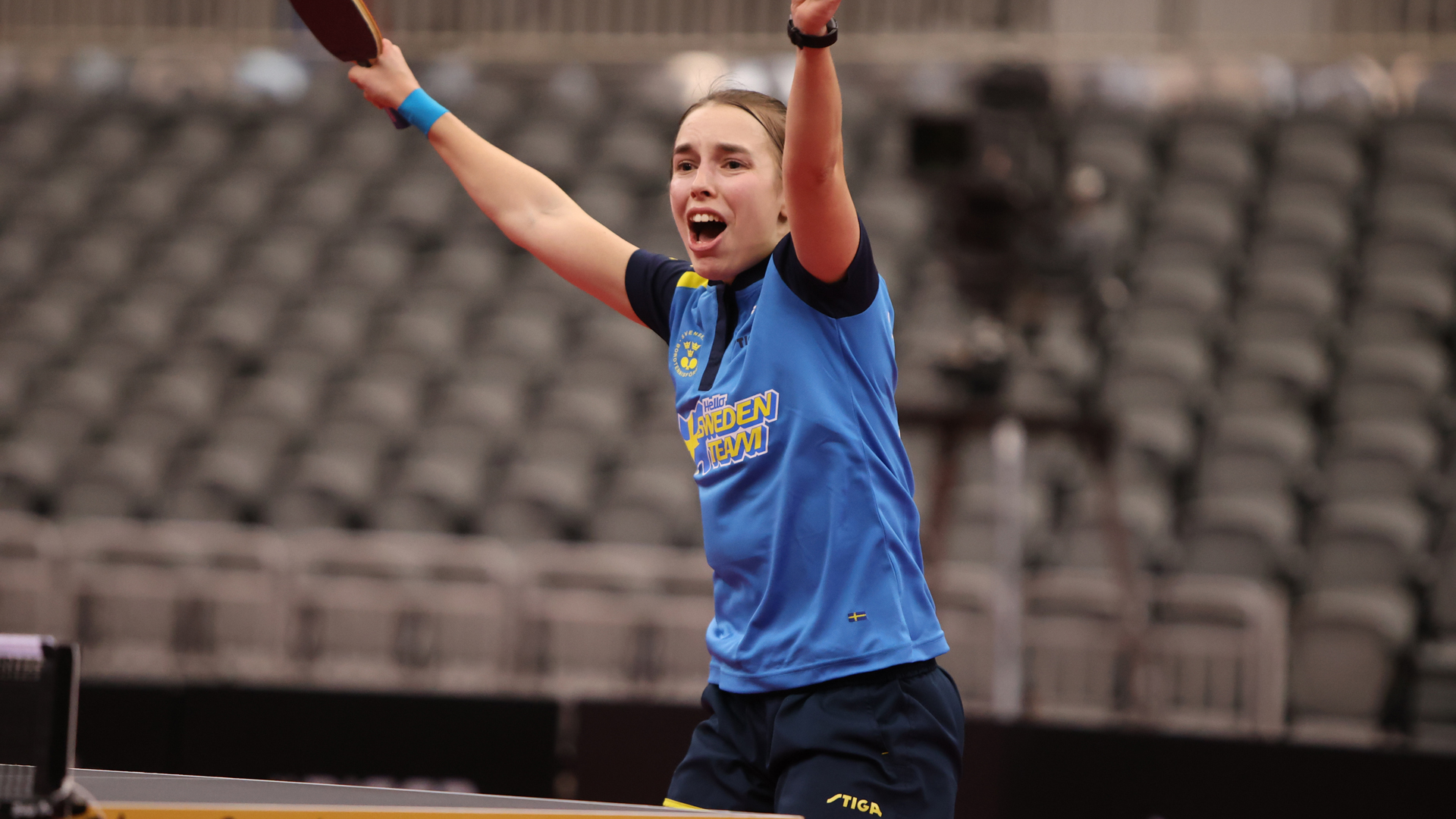In elite table tennis, the prevailing philosophy is that the best defense is a good offense. Since the advent of sponge rubber almost 70 years ago, the formerly slow, strategic game has turned into a showcase for speed and power. There are, of course, always a few defenders lurking around to keep things interesting. At this week's World Singles Qualification Tournament in Doha, Qatar, defense is proving to be a viable route to the Tokyo Olympics. The men's draw makes the most chaotic, bracket-busting March Madness look utterly predictable. Stunningly, all top five seeds are gone. The top two remaining seeds are defenders: #6 Wang Yang of Slovakia and #10 Panagiotis Gionis of Greece, playing in today's Knockout 3 final for a direct qualification to Tokyo. The runner-up will join all other non-victorious semifinalists in one final knockout for one final ticket. Today, four women secured direct Olympic qualification by winning their respective knockout brackets. Of the four, two were top seeds (Britt Eerland of the Netherlands and Yang Xiaoxin of Monaco), while two pulled off upsets: Polina Mikhailova of Russia and Linda Bergström of Sweden (pictured), both defenders. World #46 Mikhailova's upset over her group's top seed, world #40 Suthasini Sawettabut of Thailand, was relatively minor. The world #81 Bergström's triumph over Ukraine's world #32 Margaryta Pesotska, however, was a signature win for the 26-year-old Swede. "I have no words," said Bergström, before contradicting herself by finding the words, "It was unbelievable, hard to describe." While much remains to be settled in Doha, a minimum of three stubbornly anachronistic defenders will be going to Tokyo this summer. Could the "new normal" include a renaissance of the defensive arts in table tennis?
More at ITTF
